Posters by Rébecca Dautremer
by Emilio Cirri
There is a place in Tuscany that may not be as well-known to international tourists as Florence, Siena, or Pisa, but which—besides being an enchanting city thanks to its uniquely preserved Renaissance walls—becomes, every year around October 31, one of the most important capitals of global entertainment and pop culture: we are talking about Lucca and its Lucca Comics and Games, which in 2025 celebrates its 59th edition.
A bit of history
Founded in 1965 through an Italian-French initiative by Carlo Calisi, Rinaldo Traini, and Claude Molterni (and supported by prominent intellectuals such as Umberto Eco), the event—then called the Salone Internazionale dei Comics—was the first of its kind dedicated to comics, becoming a prototype for other festivals such as the Festival International de la Bande Dessinée d’Angoulême and the Internationaler Comic-Salon Erlangen.
After its first edition in Bordighera (Liguria), it moved to Lucca in 1966, where over the decades it has grown steadily. Starting with a focus on comics, it gradually evolved into a major festival encompassing multiple areas of entertainment: from card and board games to video games and role-playing (live and otherwise), from cinema and TV series to animation, from cosplay to children’s literature.
Since the 2000s, the festival has expanded within the city’s ancient walls, creating a truly unique atmosphere—hosting exhibitions inside beautiful churches and 19th-century palaces, role-playing games taking place atop and within the city walls, and the large marketplace exhibition animated by author talks, book signings, game testing, and immersive interactive experiences. These have been held in ever-larger tents capable of accommodating thousands of visitors—an average of 200,000 attendees per edition over the past decade (40,000 per day), with a record 319,000 tickets sold in 2022.
The festival’s growth has attracted new partners: alongside the exhibition area featuring all the most important Italian comics publishers (and, in recent years, several international ones), the self area dedicated to independent comics, and the pavilion selling original art, visitors can now find all the major film and television production companies (Warner Bros., Netflix, Prime Video), publishers of board and card games (Magic), video game giants (Nintendo, PlayStation, and many others), as well as merchandise and collectibles such as Funko Pop! and LEGO.
However, Lucca is not just a large marketplace. Meetings, workshops for children, live showcases, and art exhibitions of great cultural relevance create a rich and varied program—not just an opportunity for members of different communities to gather, but also a chance to appreciate the artistic and cultural side of entertainment products and to meet international guests of the highest caliber.
Over the years, world-renowned authors and artists have graced the festival: focusing on comics alone, names include Stan Lee and Jack Kirby, Moebius and Hugo Pratt, Will Eisner, and, in more recent years, acclaimed mangaka such as Naoki Urasawa (20th Century Boys, Pluto), Kōhei Horikoshi (My Hero Academia), Hirohiko Araki (JoJo’s Bizarre Adventure), and many others from Asia (with a record in 2024 of 12 authors from Japan, China, Korea, Taiwan, and Vietnam).
We could continue with mainstream American comic artists such as John Romita Jr., Jeph Loeb, and Frank Miller; indie legends like Chris Ware and Daniel Clowes; and children’s comics superstars like Raina Telgemeier, Gene Luen Yang, and Kazu Kibuishi.
In recent years, Lucca has also hosted major figures from other sectors: Tim Burton, who in 2022 premiered the Italian preview of Wednesday at the festival; and Alexey Pajitnov in 2024, the creator of Tetris—alongside many others who have unveiled films, TV series, and games in world premieres.
Finally, the event always features the most important Italian comic artists—such as Gipi, Igort, and Zerocalcare—as well as the best emerging talents, guests of various publishing houses and available for panels and signings.
French Kiss: The 2025 Edition
The 2025 edition, titled French Kiss, aims to celebrate the concepts of Liberté, Créativité, Diversité, to reaffirm values such as community and inclusivity (long standing pillars of the festival), and, together with the Institut Français, to honor France through a variety of initiatives: a showcase by the renowned French illustrator Rebecca Dautremer, author of the festival’s official poster; a history of the bande dessinée with the exhibition Hexagones, featuring original works by Claire Bretécher, Florence Cestac, Moebius, Philippe Druillet, Baudoin (among the festival guests), Gotlib, Jean-Marc Reiser, Jacques Tardi, Georges Wolinski, and Baru; as well as a dedicated space for the board game Dixit, conceived by Jean-Louis Roubira and illustrated by Marie Cardouat.
Beyond France, the festival also celebrates the 40th anniversary of Fist of the North Star, one of the most influential manga (and later anime) in introducing Japanese comic culture to Europe. For the occasion, the series’ creator, Tetsuo Hara, will be present with an exclusive exhibition.
Other notable guests include Kevin Eastman, creator of the Teenage Mutant Ninja Turtles; John Romita Jr., one of the most important American comic artists of recent decades; Darick Robertson, co-creator of The Boys; Mike Richardson and David Scroggy, the former founder and CEO of Dark Horse Comics, the latter a key figure at the company for 20 years; Guy Delisle, one of Canada’s most prominent cartoonists and a leading figure in graphic journalism and travel comics; and Chip Zdarsky, Eisner Award-winning writer of Batman, Daredevil, and currently Captain America (for Berliners, he will also appear on October 28 at Walt’s Comic Shop for an exclusive event).
The list continues with other manga artists, including Kei Urana and Hideyoshi Andou, creators of Gachiakuta. Moving beyond comics, some major names from TV series (Stranger Things creators Matt and Ross Duffer, and stars Finn Wolfhard, Gaten Matarazzo, Caleb McLaughlin, Noah Schnapp), video games (Hideo Kojima, creator of milestones such as Metal Gear and Death Stranding; John Romero, father of DOOM and Quake; and Keiichirō Toyama, creator of Silent Hill and Siren), and cinema (director Luc Besson) will also be present.
These names, just some of the 100 announced guests (the full list is available on the official website: https://lucca2025.luccacomicsandgames.com/en/home
From the States to Lucca: Some Useful Information
With such a large number of international guests, the festival is easily accessible to visitors from around the world. While many on-site signs and products are primarily in Italian, guest panels and meetings are usually held in their original language—often English—and are interpreted on the spot for the local audience. The official festival app can also be set to English, helping attendees navigate the maze of pavilions and the sea of people.
For first-time visitors, the experience can be particularly intense, sometimes overwhelming, even if they have attended other conventions before. Due to the high number of attendees, the organizers have gradually expanded the pavilions throughout the historic city center (and the Japan area has even been moved to the outskirts, accessible by shuttle bus every 10 minutes). Visitors should be prepared to walk extensively through sometimes crowded streets on weekends. For those needing a break, the numerous churches and the Cathedral provide excellent resting spots as well as worthwhile cultural stops.
Although access to the pavilions has improved over the years, long waits are still possible due to limited capacity relative to demand—especially for the tents dedicated to films, games, collectibles, and photo opportunities, less so for comics. Lines should also be expected for autograph sessions and exclusive author events. It is therefore useful to check the festival’s and publishers’ websites and social media accounts, which are often more detailed than the app. Public events typically require registration via Eventbrite—a system that has received some criticism over the years and may change.
Ticket prices (still available at https://luccacomicsandgames.ticketone.it/en/) range between €25 and €32 per day ($29 to $37). For a festival of this scale, especially compared with similar events in Europe and the U.S., this is a reasonable price. However, it is recommended to purchase at least a two-day pass, as a single day is generally too short to experience all that Lucca Comics and Games has to offer. A one-day visit would require focusing on only one part of the festival while missing others.
There is also a free option: while entry to the pavilions requires a ticket, many exhibitions, some panels, and simply wandering the city streets are unrestricted, allowing visitors to enjoy the festival atmosphere in a different but still rewarding way. In general, for those who may not be attending specific events or meeting particular guests, it is advisable to visit outside of Saturday, to enjoy the Lucca experience a little more relaxedly—walking calmly, discovering unexpected parts of the city, and finding more affordable food options farther from the busiest pavilions.
For travelers coming from the United States, the best approach is usually to fly into Rome or Milan and then take a high-speed train to Florence, or to fly into Pisa International Airport or Florence Airport.
The most critical consideration is accommodation. Staying in Lucca itself is often impractical, as apartments and hotels are frequently booked as early as the previous year, and remaining rooms can reach astronomical prices due to heavy demand. Nearby cities may also experience price increases, but choosing locations connected by train from Pisa or along the Florence–Lucca route can make finding more affordable lodging possible, though train travel during peak hours (morning from 7 a.m. and evening from 6 p.m.) can be uncomfortable, with overcrowded carriages. Planning ahead with patience and organization is essential—and can also be an opportunity to visit other cities and enjoy a Tuscan holiday.
All in all, for any fan of pop culture, Lucca Comics and Games is a festival that, like very few others internationally, is worth visiting at least once. If not this year, mark your calendars for the next edition.

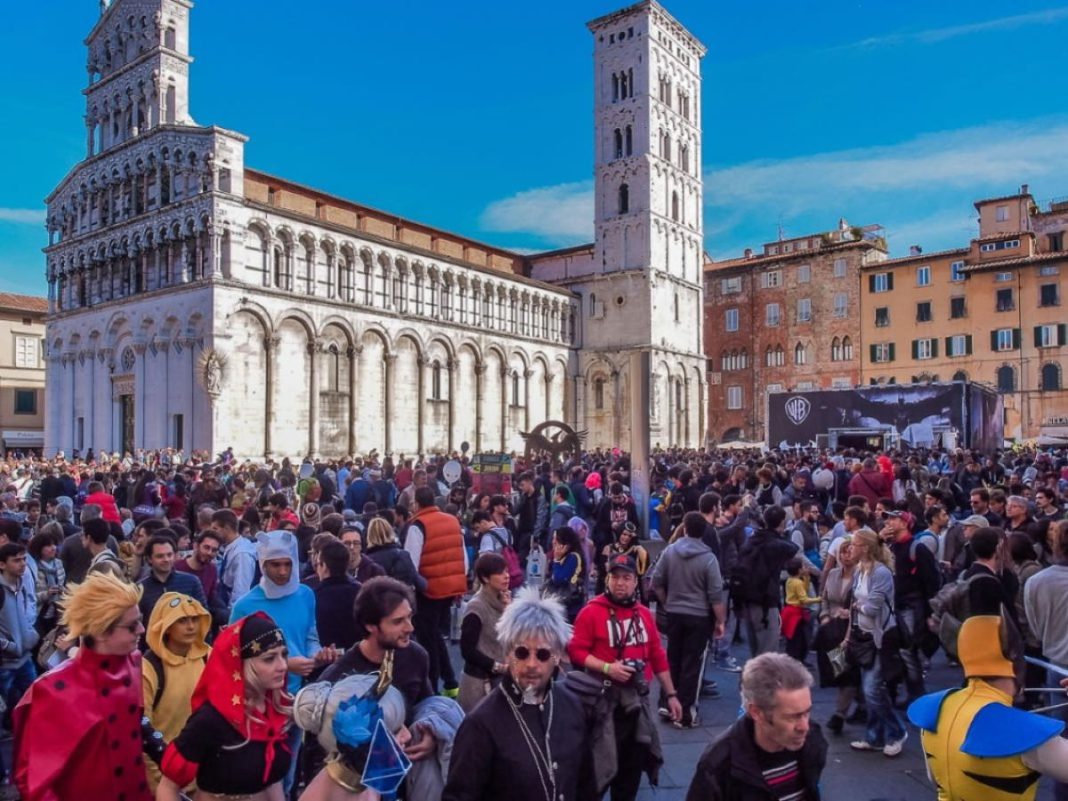

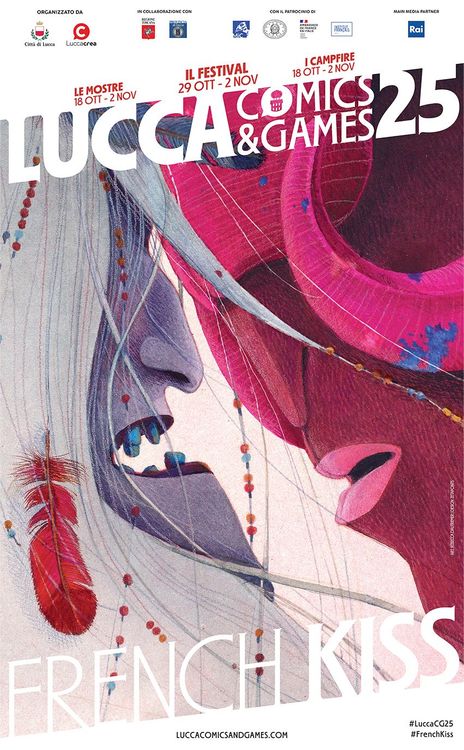


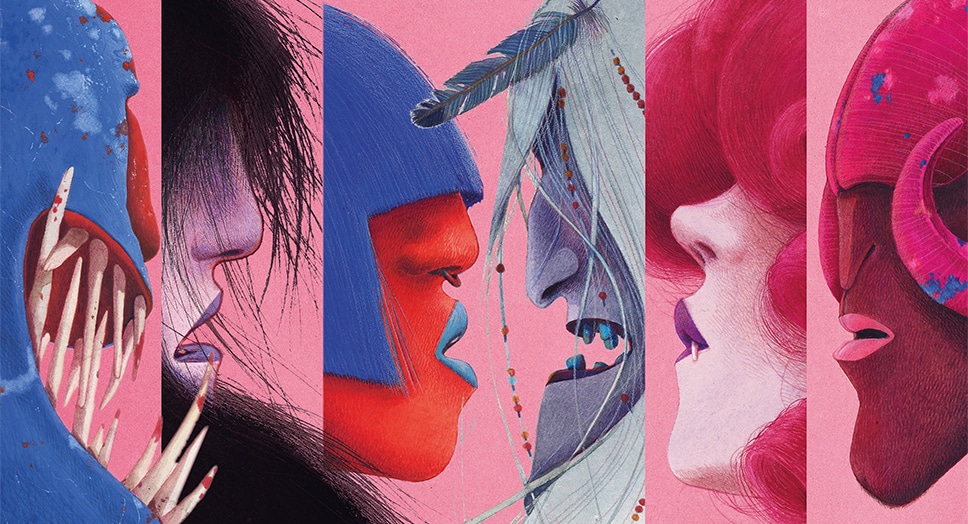
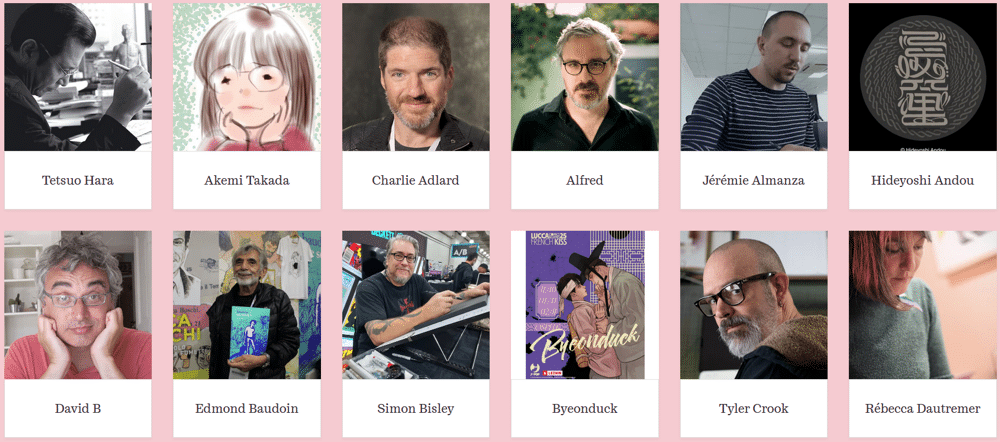
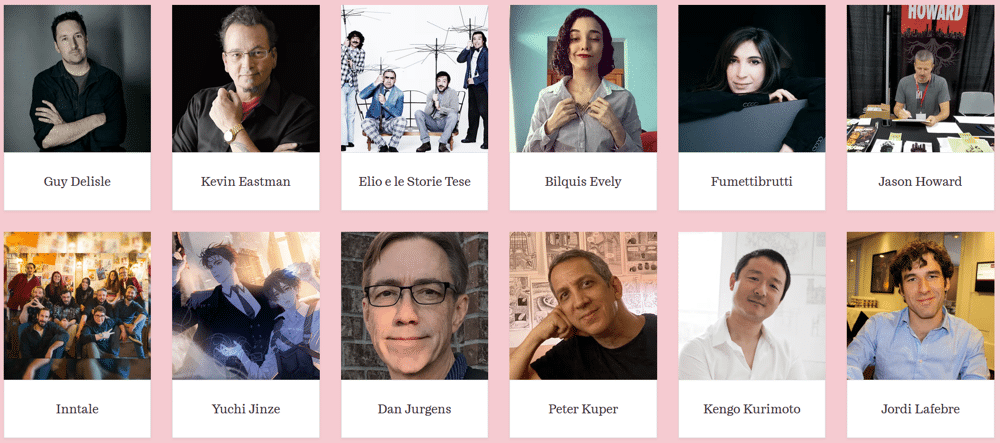
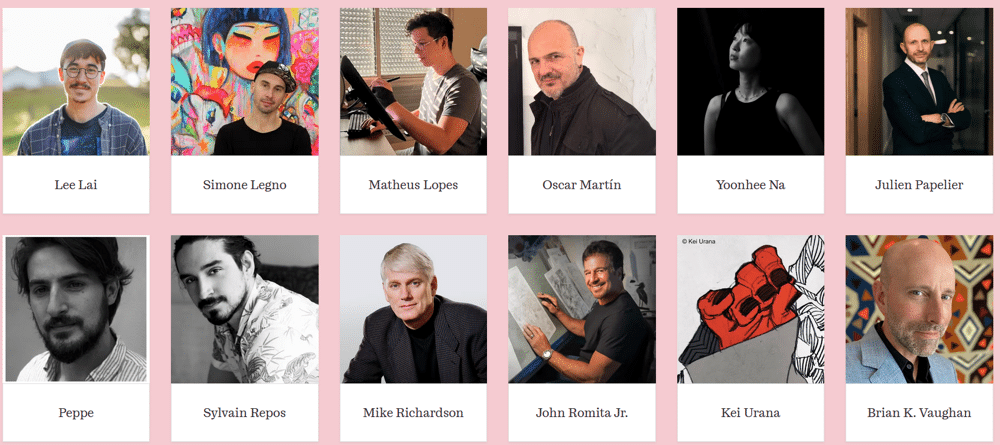
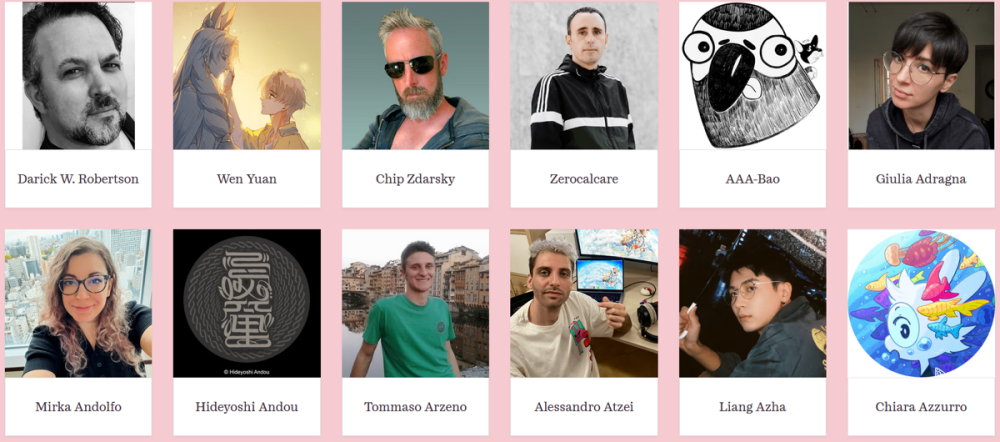




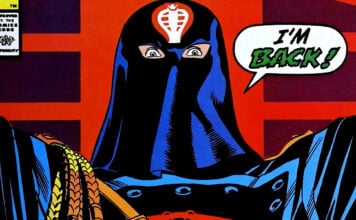




The Italian name ‘Salone Internazionale dei Comics’ is a bit peculiar, since in Italian, ‘Comics’ mean specifically Anglo-American comics, while ‘Fumetti’ is the term for comics in general. (To confuse matters even further, ‘Fumetti’ often means photo-comics in English.)
But I guess it might have been due to the pop culture sentiments of the time.
Comments are closed.